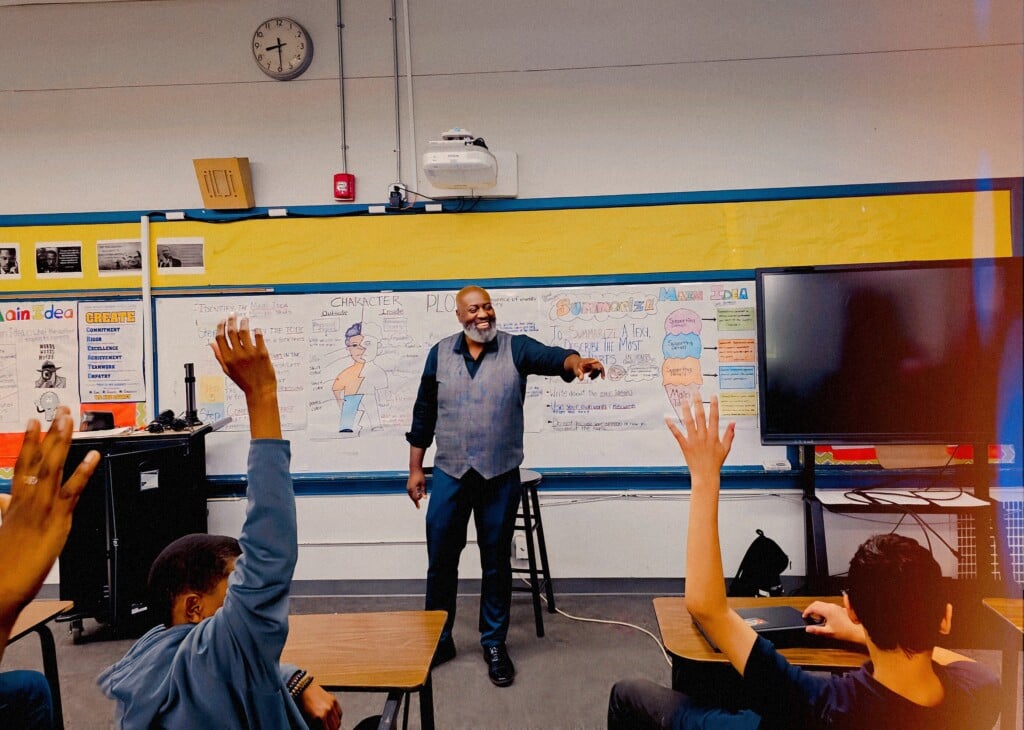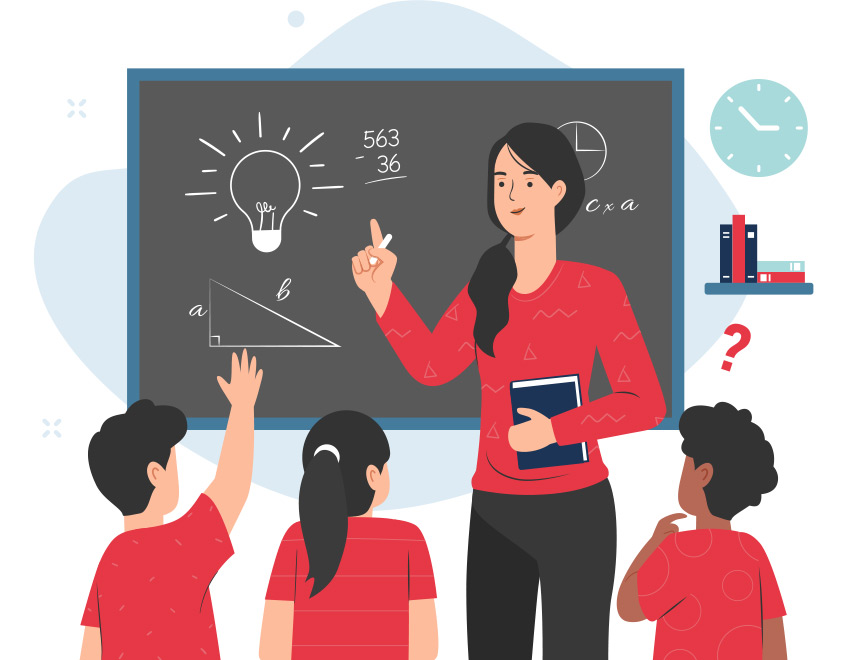Improve Your Child’s Performance with Primary Science Tuition Singapore
Improve Your Child’s Performance with Primary Science Tuition Singapore
Blog Article
A Comprehensive Guide to the Numerous Learning Techniques in Primary Science Instruction
The expedition of diverse understanding methods in key science direction presents an opportunity for educators to improve trainee interaction and understanding significantly. By examining hands-on knowing techniques, inquiry-based methods, and joint strategies, we can recognize reliable practices that satisfy numerous finding out styles. In addition, the assimilation of technology and differentiated guideline plays a vital function in promoting a comprehensive atmosphere. Nevertheless, the question stays: how can these approaches be successfully applied in the class to optimize their effect? The answer exists in a more detailed assessment of each approach and its ramifications for training science.

Hands-On Learning Techniques
Hands-on discovering methods play an essential function in key science instruction, involving trainees in energetic exploration and experimentation. These techniques enable students to connect directly with sensations and products, fostering a deeper understanding of scientific concepts. By utilizing manipulatives, versions, and real-life experiments, teachers develop a setting where students can observe, hypothesize, and evaluate their ideas.
Such strategies not only enhance understanding however additionally grow vital thinking and analytical abilities. When trainees join tasks like constructing straightforward makers, planting seeds, or performing chain reactions, they are encouraged to ask questions and seek answers via their very own monitorings. This experiential method helps to debunk complicated clinical principles, making them extra available and relatable.
Furthermore, hands-on learning promotes cooperation amongst peers, as pupils usually operate in teams to carry out experiments or share findings. This team effort not only improves their knowing experience however additionally creates essential social abilities. Eventually, incorporating hands-on strategies in key scientific research direction fosters a lifelong love of knowing and inquisitiveness about the environment, laying a strong structure for future academic searches in science and past.
Inquiry-Based Knowing
Inquiry-based knowing is a training approach that motivates students to ask inquiries, explore sensations, and construct their own understanding of clinical principles. This method shifts the focus from traditional teacher-led instruction to a much more student-centered experience, where learners take the initiative in their instructional journey. By promoting inquisitiveness, inquiry-based discovering promotes deeper engagement with the product, allowing students to explore subjects in a meaningful context.
In practice, this strategy usually entails hands-on experiments, observations, and essential reasoning activities that straighten very closely with the scientific method. Trainees are motivated to formulate hypotheses, layout examinations, and examine data, which cultivates crucial abilities such as analytical and analytic reasoning. The role of the educator in this framework is to facilitate expedition, assisting trainees with the questions procedure while encouraging independent idea and partnership.
In addition, inquiry-based understanding nurtures a sense of ownership over the knowing process, encouraging pupils to seek understanding proactively. This technique not only improves understanding of scientific ideas however additionally fosters a long-lasting love for learning, gearing up pupils with the skills needed to browse a significantly intricate globe.
Collaborative Understanding Approaches
Joint learning techniques equip trainees to involve in significant interactions with peers, promoting a shared responsibility for their educational results. In main scientific research guideline, these approaches encourage learners to interact to check out scientific concepts, address problems, and carry out experiments (primary science tuition Singapore). By taking part in group activities, students can take advantage of diverse point of views, permitting richer understanding and retention of clinical knowledge
One key facet of joint understanding is the focus on interaction skills. Pupils have to verbalize their ideas, listen actively to others, and negotiate concepts, every one of which are vital proficiencies in both real-world and go to these guys scholastic contexts. This social interaction not only boosts their understanding of scientific concepts yet likewise promotes team effort and problem resolution abilities.
When trainees see the value of their payments within a team, they are a lot more most likely to take ownership of their discovering journey. Overall, incorporating collective learning approaches in primary science direction cultivates a vibrant discovering environment that prepares students for future academic and social obstacles.
Modern Technology Combination in Scientific Research
The combination of technology in primary science guideline improves discovering experiences by supplying ingenious devices and sources that support numerous mentor techniques, including collaborative learning - primary science tuition Singapore. The use of electronic platforms, simulations, and interactive applications enables trainees to engage deeply with scientific ideas, facilitating a much more hands-on approach to knowing
Online research laboratories, as an example, make it possible for students to perform experiments securely and efficiently, promoting inquiry-based knowing. These tools can replicate real-world scientific scenarios, allowing trainees to picture complicated procedures that would be hard to reproduce in a typical class setting. Innovation cultivates interaction and partnership among pupils, as they can share searchings for and work together on jobs through on the internet systems.
Furthermore, multimedia presentations and academic video clips can enhance lessons by providing to diverse knowing designs, making abstract principles a lot more easily accessible. Data analysis tools additionally encourage pupils to gather and analyze clinical information, strengthening essential thinking skills. Generally, the strategic incorporation of modern technology in key science direction not only improves engagement however additionally prepares students for a technologically sophisticated culture, equipping them with essential abilities for future clinical undertakings.
Distinguished Direction Techniques
Distinguished direction approaches are crucial for addressing the varied needs of students in key science education and learning. These methods make it possible for instructors to tailor their teaching techniques to fit visit this page varying capacities, interests, and discovering designs within the class. By utilizing distinguished direction, educators can develop a comprehensive environment that cultivates engagement and enhances understanding of clinical principles.
One reliable approach is to utilize adaptable grouping, which permits students to team up with peers at comparable skill degrees or with differing perspectives. This technique urges peer knowing and advertises crucial reasoning. Furthermore, click to investigate providing options in tasks can encourage pupils, permitting them to pick jobs that reverberate with their interests while still fulfilling curricular objectives.
In addition, integrating tiered assignments is one more valuable method. Deliberately tasks with varying levels of intricacy, teachers can make sure that all pupils are suitably tested, no matter their effectiveness. Using formative evaluations to determine understanding further enables teachers to readjust their training techniques dynamically, guaranteeing that each student obtains the support they require.
Eventually, executing separated instruction approaches in main science education not just improves trainee understanding end results yet also cultivates an enthusiasm for science, preparing students for future scholastic quests.

Verdict
In recap, effective main science direction requires a multifaceted method that incorporates hands-on knowing, inquiry-based techniques, and collaborative strategies. The assimilation of modern technology and differentiated guideline better satisfies diverse learning designs, fostering an atmosphere conducive to expedition and important thinking. By carrying out these methods, educators can improve pupil interaction and comprehension, inevitably supporting a long-lasting passion for scientific research and inquiry. Such comprehensive methodologies are important for creating notified and interested future scientists.
The expedition of varied learning techniques in main scientific research guideline provides an opportunity for teachers to enhance student interaction and understanding substantially.Hands-on learning techniques play an essential role in main science guideline, involving students in active exploration and trial and error.Inquiry-based learning is an educational technique that urges students to ask inquiries, explore phenomena, and create their own understanding of scientific concepts.Collective understanding techniques equip pupils to engage in meaningful interactions with peers, fostering a common duty for their instructional results. On the whole, including collective knowing strategies in main scientific research direction grows a dynamic understanding setting that prepares students for future academic and social obstacles.
Report this page